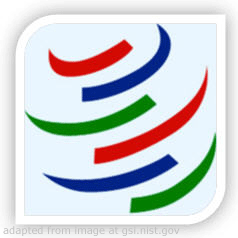WTO Accession Means Many Changes
 Russia inched closer to joining the World Trade Organization after 18 years of talks Wednesday, by signing a deal with its neighbor and one-time foe Georgia.
Russia inched closer to joining the World Trade Organization after 18 years of talks Wednesday, by signing a deal with its neighbor and one-time foe Georgia.
The deal foresees a neutral company monitoring all trade between the two nations, including the breakaway Georgian provinces of Abkhazia and South Ossetia.
The ceremony itself was held behind closed doors, and neither side commented to waiting reporters after the signing. An official present at the meeting, who spoke on condition of anonymity, said it was cordial, ending with applause. Trade diplomats from all the WTO's 153 members still have to finalize Russia's accession document later this week, with European Union officials expressing some reservations about the final wording.
Foreign manufacturers are closely watching what tariffs Moscow will accept on goods such as automobiles and farm produce, and whether it will cave to outside demands for tighter enforcement of intellectual property rights.
Following are selected extracts from the accession agreement, spelling out specific commitments by Russia.
Tariffs
Import tariff ceiling will average 7.8 percent, compared with an actual 2011 average of 10 percent.
The average ceiling for agricultural import tariffs will be 10.8 percent, lower than the actual 13.2 average.
The average ceiling for manufactured goods will be 7.3 percent, compared with an average of 9.5 percent now.
Import tariffs on information technology products, currently 5.4 percent, will be zero. Cotton imports will also have a zero tariff.
Tariffs for cars, helicopters and civil aircraft will come in after seven years and for poultry after eight years.
Services
The foreign equity limit in telecoms, currently 49 percent, will be scrapped four years after accession.
Foreign insurers will be able to open Russian branches nine years after accession.
Foreign banks will be allowed to establish subsidiaries. There would be no cap on foreign equity in individual banking institutions, but overall foreign participation in the banking system will be limited to 50 percent.
Upon Russia's accession, 100 percent foreign-owned companies will be allowed to engage in wholesale, retail and franchise sectors.
Market Access
Importers of alcohol, pharmaceuticals and products with encryption technology will not need import licenses.
Government Procurement
Russia plans to join the WTO's voluntary agreement on government procurement and will initiate negotiations for membership within four years of accession.
Subsidies
Russia commits to zero export subsidies on agricultural products. It will also scrap value-added tax exemptions for certain domestic agricultural products.
Total trade-distorting agricultural subsidies will not exceed $9 billion in 2012 and will be reduced to $4.4 billion by 2018.
Subsidies for specific agricultural products will be limited in relation to overall agricultural subsidies in each year until the end of 2017. In the draft text, total product-specific support is limited to 30 percent of general subsidies, but that figure is in brackets, indicating that it is provisional.
All industrial subsidies will be eliminated, or they are not dependent on exportation or favor local goods over imports.
Aviation
Rules on aircraft leasing will be amended to ensure that foreign-made aircraft can qualify for the same benefits and are as attractive to Russian airlines as Russian-made planes. But Russia does not plan to join the WTO agreement on trade in civil aircraft.
Privatizations
Russia will privatize 100 percent of United Grain Company by 2012 and 50 percent plus one share of Rosagrolizing no sooner than 2013.
Customs Fees
Russia will cut the maximum customs clearance fee to 30,000 rubles (about $1,000) from the current 100,000 rubles and simplify procedures.
Cars
Preferential tariffs for carmakers making large investments in Russian-based production will be eliminated by July 1, 2018.
Plant and Animal Health
Russia plans to put a new law on plant quarantine into force on Jan. 1, 2012, and plans to pass a new veterinary law in 2012.
Russia, in its customs union with Belarus and Kazakhstan, will work out a common list of quarantine pests and phytosanitary requirements to enter into force on Jan. 1, 2013.
Gas
Russia intends to develop market-based pricing for the domestic gas market, aiming to ensure gas producers and distributors can profitably supply industrial customers, but will keep regulating prices for households and noncommercial users.
Railways
Railway transportation costs for domestic produce, as well as imports and exports, will be equal by July 1, 2013.
Intellectual Property
Russia commits to lower the threshold for taking action against trademark counterfeiting and copyright piracy.
Noncontractual administration of rights will be eliminated by the beginning of 2013. Organizations engaged in collective management of rights will be held accountable to ensure that right holders receive remuneration due to them.
Russia will lift its reservation to the Berne Convention for the Protection of Literary and Artistic Works before it joins the WTO.
Export Duties
Export duties on ferrous waste and scrap will be cut from (the lower of) 15 percent or 15 euros ($20) per ton in the year of accession to 5 percent or 5 euros per ton over five years.
Export duties on copper cathode will be cut from 10 percent in the year of accession to zero within four years.

